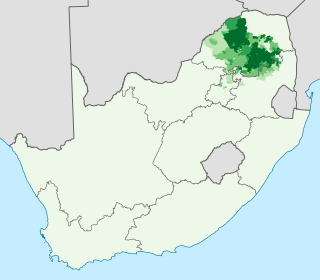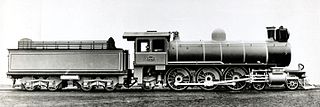
Sesotho sa Leboa is a Sotho-Tswana language group spoken in the northeastern provinces of South Africa, most commonly in Mpumalanga, Gauteng and the Limpopo provinces. It is also known by Pedi or Sepedi and holds the status of an official language in South Africa.

Polokwane, also known as Pietersburg, is the capital city of the Limpopo Province in South Africa. It is the country's largest urban centre north of Gauteng. It was one of the nine host cities of the 2010 FIFA World Cup.

Gauteng is one of the nine provinces of South Africa.

The Sotho, also known as the Basotho, are a Sotho-Tswana ethnic group native to Southern Africa. They primarily inhabit the regions of Lesotho and South Africa.

Lebowa was a bantustan ("homeland") located in the Transvaal in northeastern South Africa. Seshego initially acted as Lebowa's capital while the purpose-built Lebowakgomo was being constructed. Granted internal self-government on 2 October 1972 and ruled for much of its existence by Cedric Phatudi, Lebowa was reincorporated into South Africa in 1994. It became part of the Limpopo province. The territory was not contiguous, being divided into two major and several minor portions.

At least thirty-five languages are spoken in South Africa, twelve of which are official languages of South Africa: Ndebele, Pedi, Sotho, South African Sign Language, Swazi, Tsonga, Tswana, Venda, Afrikaans, Xhosa, Zulu, and English, which is the primary language used in parliamentary and state discourse, though all official languages are equal in legal status. In addition, South African Sign Language was recognised as the twelfth official language of South Africa by the National Assembly on 3 May 2023. Unofficial languages are protected under the Constitution of South Africa, though few are mentioned by any name.

Ermelo is the educational, industrial and commercial town of the 7,750 km2 Gert Sibande District Municipality in Mpumalanga province, Republic of South Africa. It is both a mixed agriculture and mining region. It is located 210 km east of Johannesburg.
Delmas is a small maize farming town situated east of Johannesburg in Mpumalanga, South Africa. The town is located some 19 km north-east of Springs and 73 km south-east of Pretoria.
Olga Kirsch was a South African and Israeli poet.

South African literature is the literature of South Africa, which has 11 national languages: Afrikaans, English, Zulu, Xhosa, Sotho, Pedi, Tswana, Venda, Swazi, Tsonga and Ndebele.

Mahlamba Ndlopfu is the chief official residence of the President of the Republic of South Africa. The head of government has made it their official home since 1940 and it is located in the Bryntirion Estate in Pretoria.

Burgersdorp is a medium-sized town in Walter Sisulu in the Joe Gqabi District Municipality of the Eastern Cape province of South Africa.

Coffee Bay is a town on the Wild Coast of the Eastern Cape Province of South Africa. It is located about 250 kilometres south-west of the city of Durban and has a population of 258 people.

The South African Railways Class 9 4-6-2 of 1904 was a steam locomotive from the pre-Union era in Transvaal Colony.
Ga-Molepo is a town in Capricorn District Municipality and Polokwane Local Municipality in the Limpopo province of South Africa.
Martin Andre Breytenbach was a South African Anglican bishop. He was the bishop of the Diocese of St Mark the Evangelist, a diocese of the Anglican Church of Southern Africa (ACSA) from 2000 to 2019.
S. V. Petersen was an Afrikaans-language South African poet and author, educator and founding principal of the Athlone High School, Silvertown Athlone, Cape Town. He was the first person of colour whose poetry and prose were published in South Africa.

Lucas Cornelis Malan was a South African academic and writer of poetry, prose, plays, text books, literary reviews and other articles, principally in Afrikaans.
Cecile Cilliers was an Afrikaans freelance journalist and writer. The writer Madeleine van Biljon is her sister. She is predominantly known for her essays, but also published among others a children's collection and a number of religious books. She was involved in the N.G. Kerk and was the first non-ministerial woman to be elected vice-chairperson of the Sinodal Committee. In addition to her performance of the Christian Network Television's Program Focus Point, she also presented the television program Boeksusters on KykNET with her sister, Madeleine van Biljon.
Nyashanu Mission is located in Buhera District, Manicaland Province, Zimbabwe in the area of Ishe Mabvuregudo in the local country of Mambo Nyashanu.